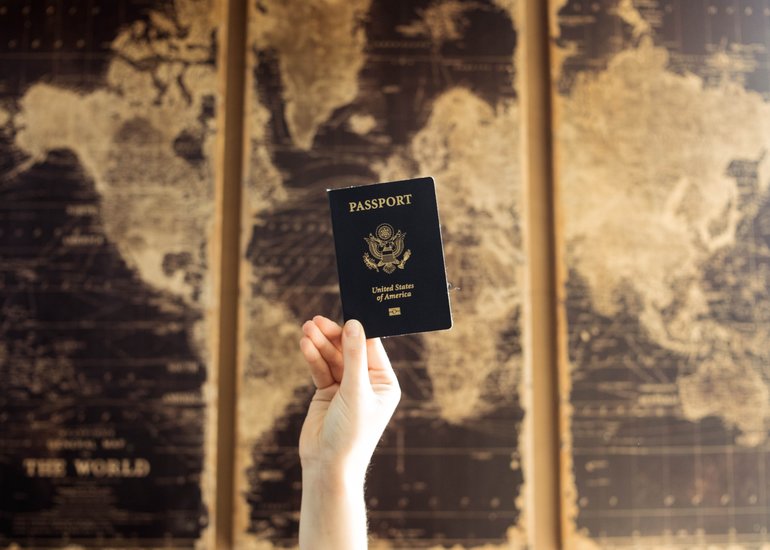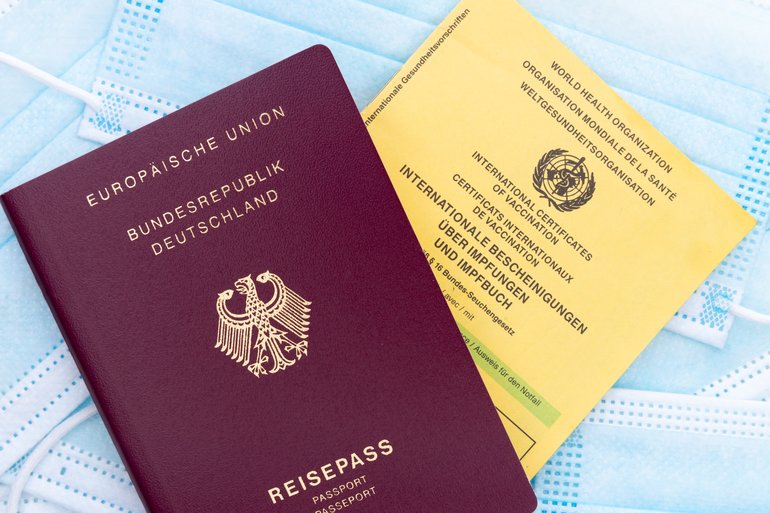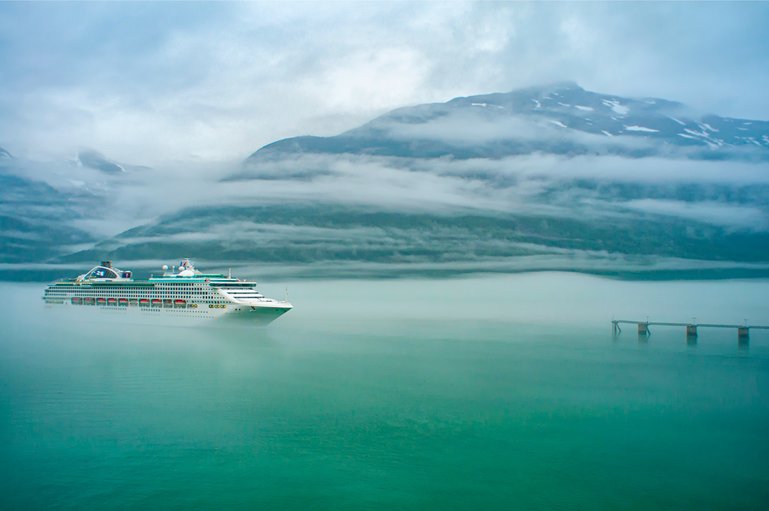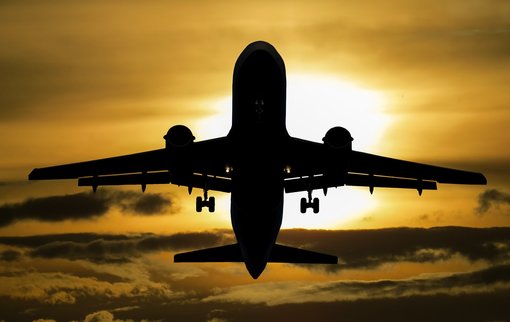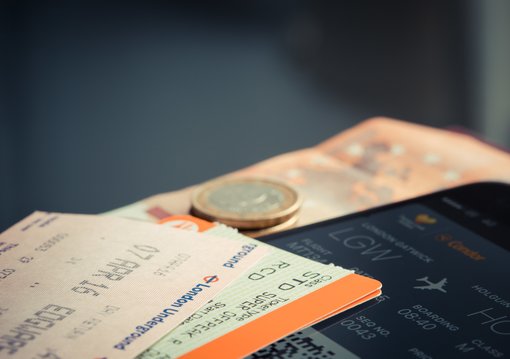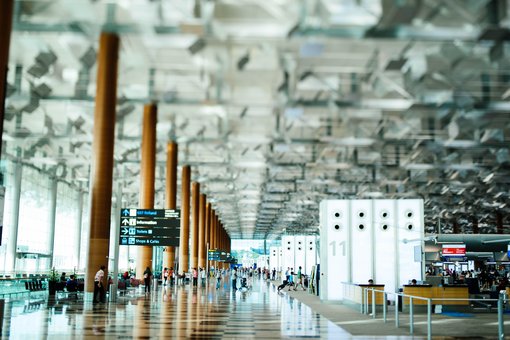Travel restrictions and requirements are always changing and it's sometimes hard to keep up with what is needed and what is not. For example, American citizens used to be able to venture up to Canada with naught but their driver's license or state ID, but now you are also required to have a passport, and eventually you will need something called a Real ID. If you are traveling internationally for work you may need a visa, but you also may not. If you book a cruise and don't plan to leave the ship do you still need a passport? And what is the difference between a passport and a visa, anyhow? Regardless of how you are traveling or where you are traveling to, you should always check, and then double check what kind of documents you will need far enough in advance that you are able to get them if need be.
Necessities
Let's start off with the things you will absolutely need, regardless of where you are going. Just about anywhere you go you can expect to need some kind of photo ID. This can be a drivers license, a state issued ID, a passport, and in some cases even a Student ID is acceptable. In most instances, 2 acceptable IDs are required for travel. When traveling internationally, every person, including children and infants, will need a passport.
If you don't have a Real ID yet, consider getting one the next time you need to renew your state ID or Driver's License because as of May 3rd, 2023 they will be required to fly, even domestically. You can also apply for one on its own (you don't need to be renewing your ID.) Be aware that it can take just as long as anything else at the DMV, so plan accordingly. Bring snacks. If possible- make an appointment.
Passports vs Visas
A Passport is “an official document issued by a government, certifying the holder's identity and citizenship and entitling them to travel under its protection to and from foreign countries.
How do you get a passport? It's a process, that's for sure… but here is a link to help you get started.
https://travel.state.gov/content/travel/en/passports.html/
Be aware that you will need to make an appointment to apply, and it is not a quick procedure. Normally, it takes an average of 4-6 weeks to get your passport. But, right now with how backed up the system is, it has been taking a lot longer. According to trave.state.gov the expected wait time for a new passport or passport renewal is 10-12 weeks (up to 3 months!) You can have it expedited (4-6 weeks) for an upcharge of $60. There is also an expedite at Agency option to potentially get it in 3 days, but this is by appointment only, and I have never seen it done. Best practice is that if you plan on traveling anywhere in the next year and need to apply or renew- do it now!
A Visa is “an official document that allows the bearer to legally enter a foreign country.”
The main difference between a visa and a passport is that a passport tells about who you are and where you're from. You will always need a passport when traveling internationally.
Whereas, a Visa is more about where you're going. If another country does not have a visa agreement with your country, you will need to obtain a visa for that country to be allowed to visit. If your country and the country you are visiting does have a visa agreement, you will not be required to have a visa to enter. Visas may also be required for business travel, international students, or other extended stays.
Also, unlike Passports, Visas are not one-size-fits-all. You do not get one that can be used world-wide… You will need to apply for a separate Visa with every country you intend to visit that requires one. And, also unlike Passports, you are applying with the country itself, not your home country.
How do you know if the country you are planning to visit will require you to have a visa? That will require just a bit of research on your part (or your travel agent's.) Here is a great link with more info on Visas:
https://www.passportindex.org/visa.php
What about a Green Card?
A Visa allows you to enter the country for a certain amount of time, whereas, a green card allows a non-citizen to gain permanent residence. This could allow you to live and work in the country for years at a time. You will not likely need to worry about obtaining a green card for your basic travel needs.
What's Required For Cruising?
U.S. citizens on closed-loop cruises (cruises that depart and return to the same port) are able to travel with proof of citizenship, such as a government-issued birth certificate, or passport, and if 16 or older, a government issued driver's license, picture ID, denoting photo, name and date of birth. While passports may not be required by the U.S. Government for close-looped voyages, the cruise line may require them if they are porting in other countries. If you plan on getting off the ship at all during your sailing, it is a good idea to have your passport with you.
If your ship does not leave and return to the same port, a passport will always be required, even for infants.
Vaccinations
We've been hearing about it a lot in the news lately with the pandemic still lingering, but vaccines with travel is not new. I believe that it is just something that a different demographic of traveler is not used to.
There are a number of places all over the world that will require you to get different vaccinations before you are allowed to enter the country, and this is a very normal practice. For example… if you are going to Asia, Africa, South America, the Middle East, Australia, or the Pacific Islands, you may be required to get vaccines for Hepatitis A & B, Yellow Fever, Malaria, Meningitis, Cholera, and/or Japanese Encephalitis. Each country, or tour, has their own requirements that you will need to comply with. Be sure to research this far enough in advance to make your appointments within the time required for traveling. Also, make sure that you bring any proof of vaccines with you. Just getting them will do nothing for you if you can't prove it happened. If your doctor doesn't offer you some kind of documentation, be sure to ask them for it... I also advise you put all your medical information directly with your passport so that you don't leave anything behind.
*Pro Tip* Even if a country itself doesn't require a specific vaccine, be aware that some touring companies still do. I have seen this with some African Safaris and even private cruises. Check and double check to be sure you meet all of the requirements before you travel.
What about Covid?
This has been quite the hot topic of late. Ever since the roll-out of the Coronavirus Vaccines the question has been on everyone's mind… will U.S. citizens be required to have their CV19 vaccinations to be able to travel? Unfortunately, I don't have a solid answer at this time. Things are changing so rapidly that what I say today may be completely irrelevant come tomorrow. But what I will say is this…
Even if the United States does not require vaccinations for travelers, other countries still may, and you will need to follow those requirements. As guests in another country, it is not our place to argue whether or not we agree with their restrictions, we need only to comply. This will be particularly interesting to see what happens for cruises that port in multiple countries, as some countries may require proof of vaccination, while other don't. If this is the case, we may see some cruise lines require vaccinations for all passengers.
I understand that getting this vaccination is personal choice, and I am not here to get political in any way… but my best advice to you is that if you are truly passionate about traveling internationally in the next few years, do yourself a favor and get the vaccine. This will save you a lot of hassle. If you are not able to, or don't want to get vaccinated for CV19, you may want to consider keeping your travel domestic for a while. (Don't fear! There are lots of great places to visit right here in the states!)
Other CV19 restrictions that are currently still in place:
For most international travel you need to show proof of a negative Covid test no more than 72 hours prior to travel to enter a country, or to return to the U.S.
If you test positive you will not be able to travel and must quarantine for 2 weeks, or until you are able to test negative.
Here is a link to the most current CV19 travel information:
Pro Tip
With vaccines beginning to be so accessible, many resorts are no longer offering complimentary or discounted quarantine stays for guests who test positive. Be sure to know your resort's policy before booking, and consider really good travel insurance!
Other Requirements for Travel
As I have said before, each country has its own set of rules for visiting travelers. Some countries require very specific conditions to be met for you to visit. For example, to visit The Galapagos Islands you must have traveler's insurance. If visiting New Zealand or Australia you will need to apply for a Electric Travel Authority.
It is always a good idea to do extensive research before planning a trip so that you know exactly what you are getting into before you get too far to back out. As always, I will also advise that you save yourself all the trouble and simply work with a Travel Agent! (We really are the best!) This is what we do for a living, so we know what to look up and how to find it!
